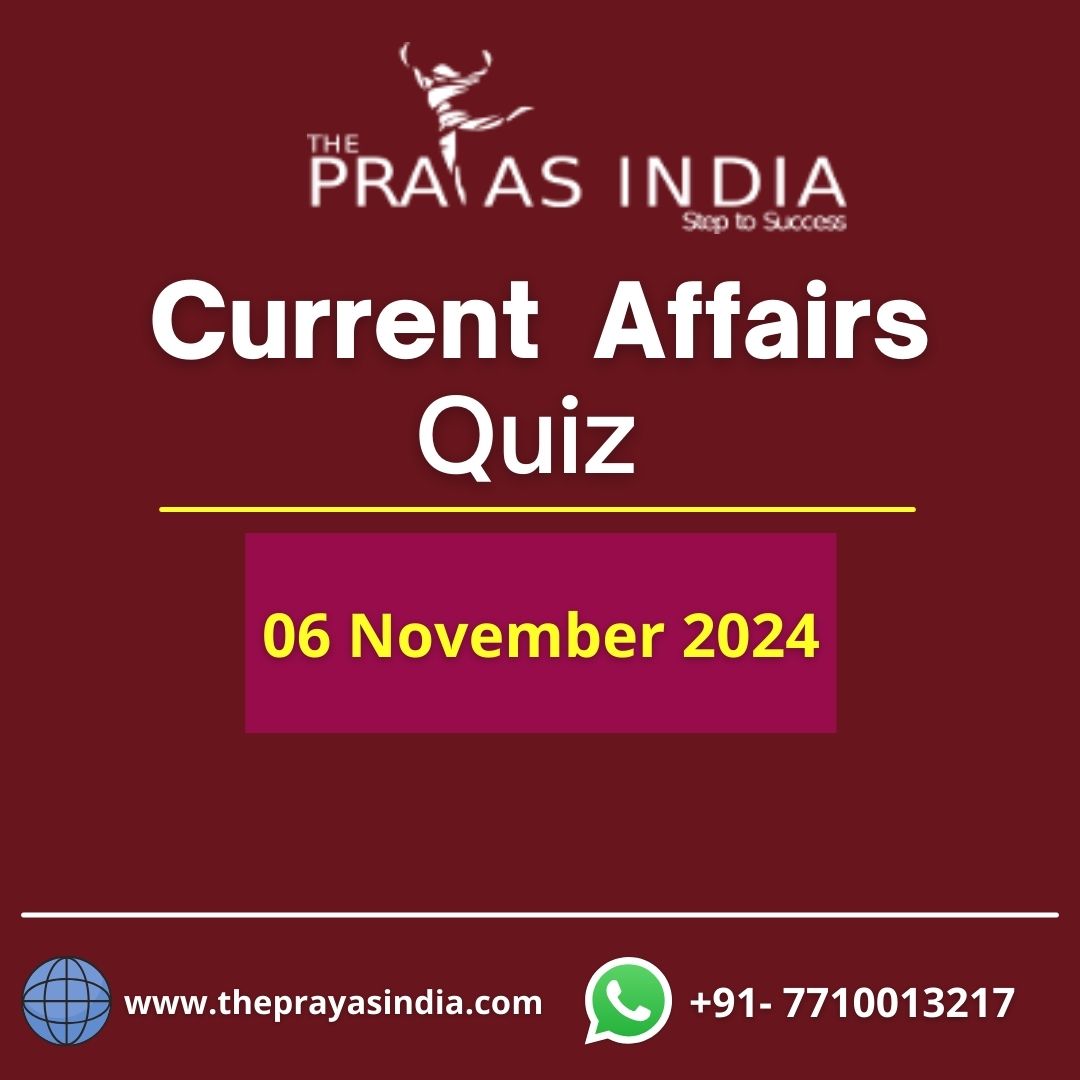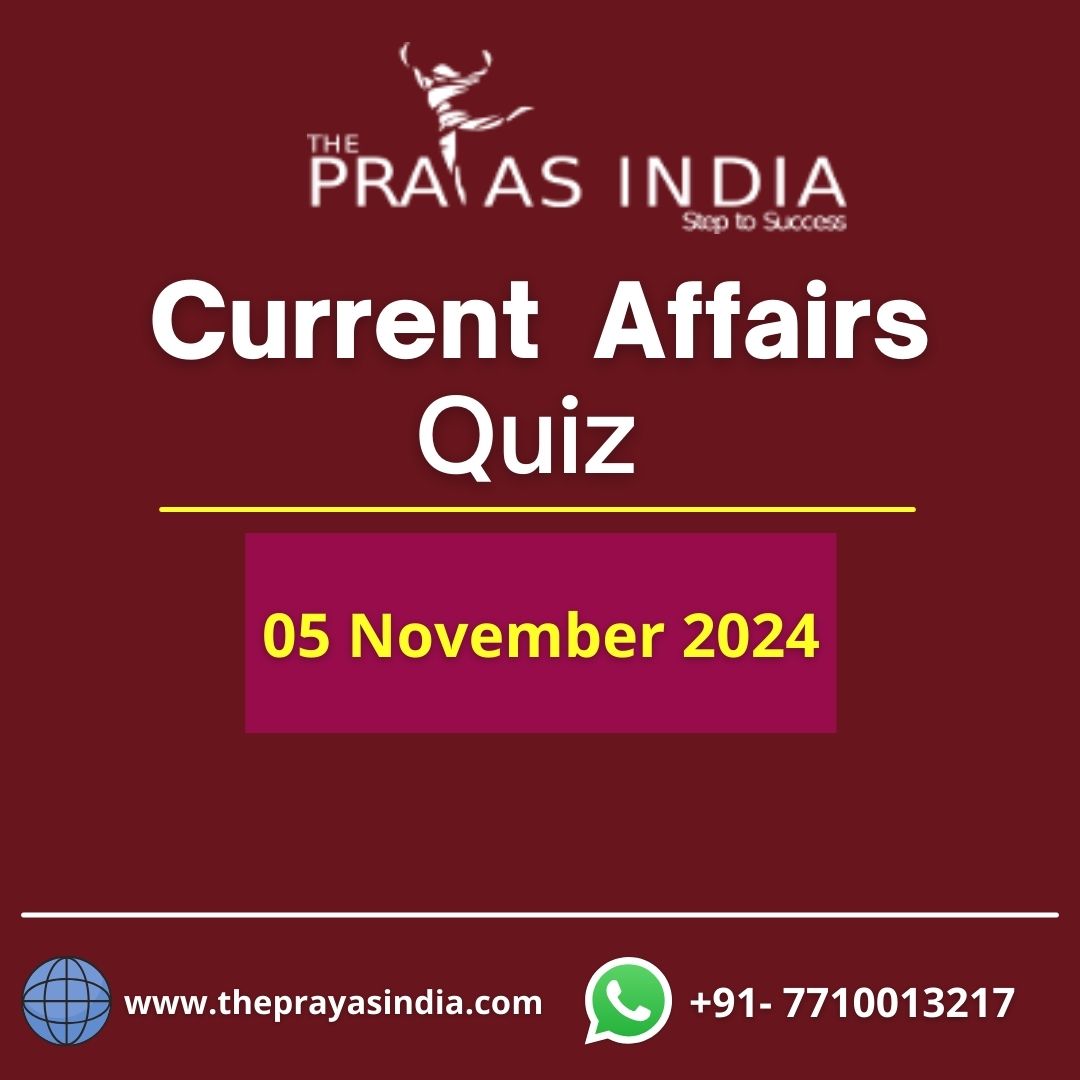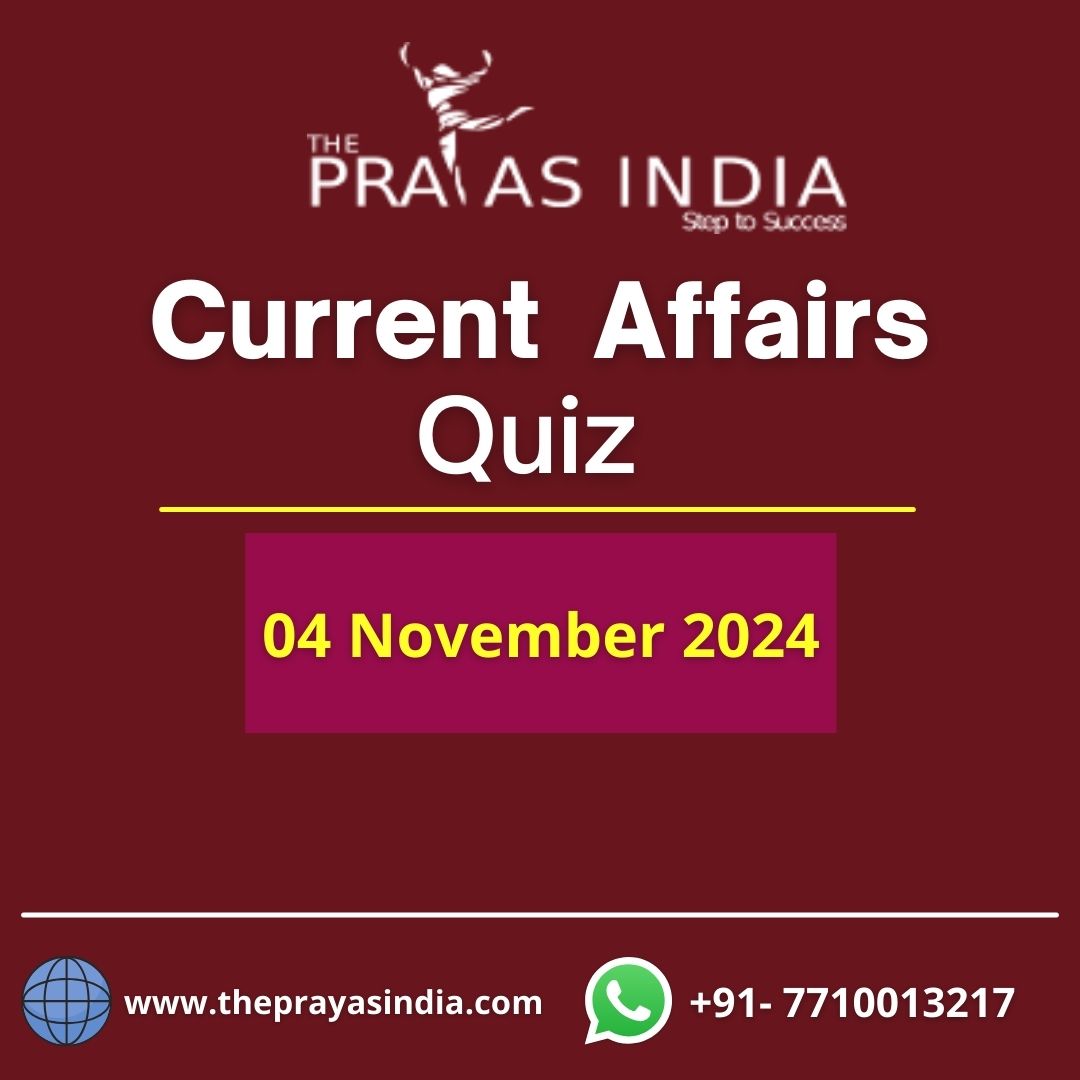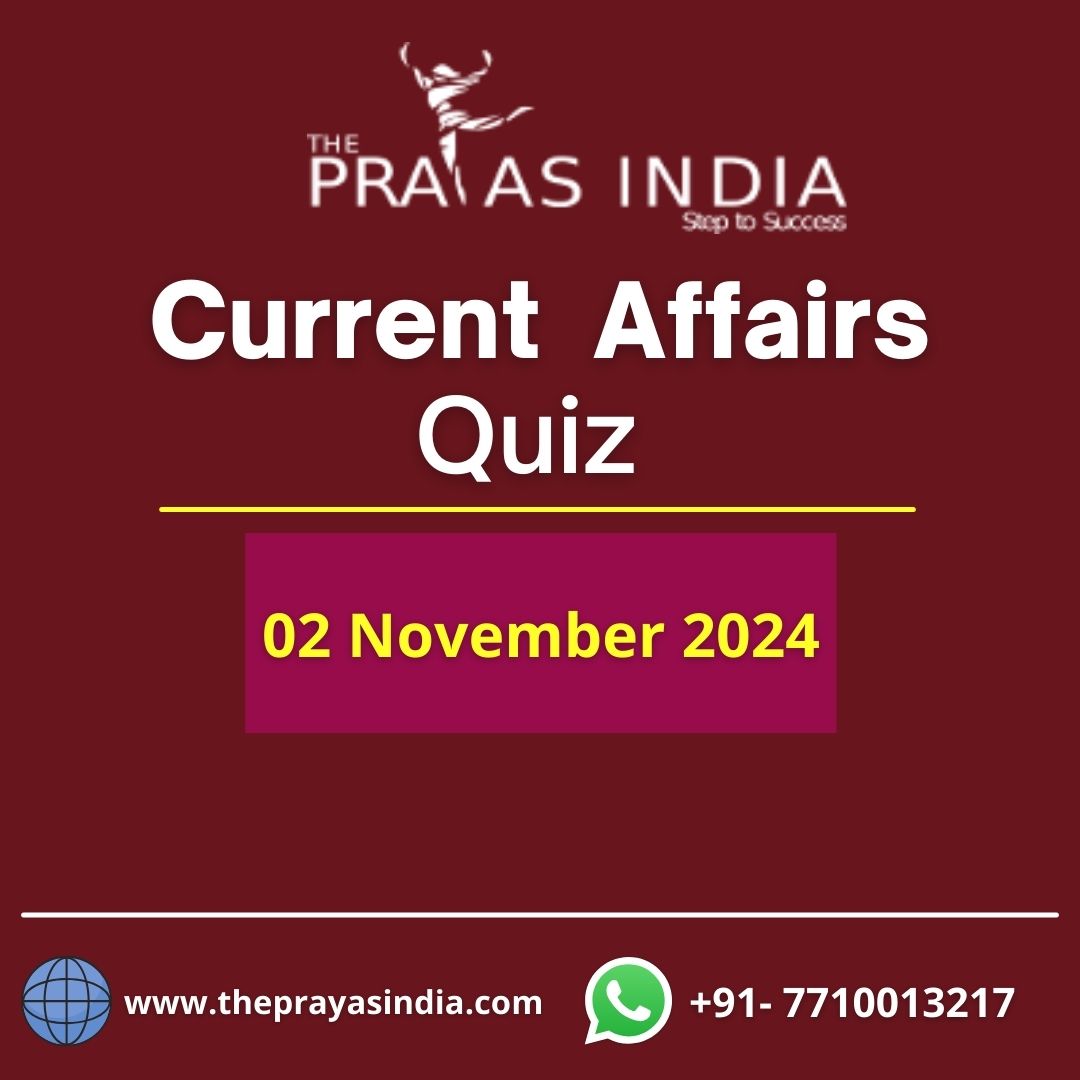Q1. Consider the following statements about World Food Programme:
- It is an international organization within the United Nations that provides food assistance worldwide.
- It is the world’s largest humanitarian organization.
- It has been awarded the Nobel Prize for Peace 2020 for its efforts to combat hunger.
How many of the statements given above is/are correct?
(a) Only one
(b) Only two
(c) All three
(d) None
Ans: (c)
Explanation:
- Context: The World Food Programme has released “HungerMap LIVE: Global insights and key trends”.
- The World Food Programme is an international organization within the United Nations that provides food assistance worldwide. It is the world’s largest humanitarian organization and the leading provider of school meals.
- WFP has been awarded the Nobel Prize for Peace 2020 for its efforts to combat hunger
Q2. Which of the following statements about parliamentary democracy is correct?
(a) In a parliamentary democracy, the head of state is typically an elected president.
(b) Parliamentary democracy is a system where the executive and legislative branches of government are separate.
(c) The Prime Minister in a parliamentary democracy is not responsible to the legislature.
(d) Parliamentary democracy is a form of government where the monarch holds absolute power.
Ans: (a)
Explanation:
- In many parliamentary democracies, such as India and Germany, the head of state is indeed an elected president. The head of state’s role is usually ceremonial, and the real executive power lies with the Prime Minister and the legislative body.
Q3. Project ‘Mausam’ is an initiative led by the following:
(a) NITI Aayog
(b) Archaeological Survey of India
(c) India Meteorological Department
(d) Ministry of Culture
Ans: (d)
Explanation:
- Project ‘Mausam’ is a cultural initiative led by the Ministry of Culture and implemented by the Indira Gandhi National Centre for the Arts (IGNCA), New Delhi. It aims to showcase a Transnational Mixed Route (Natural and Cultural Heritage) on the World Heritage List. The project explores monsoon patterns, cultural routes, and maritime landscapes in the Indian Ocean region.
Q4. With reference to the World Heritage site consider the following statements:
- A World Heritage site is classified as a natural or man-made area or a structure that is of international importance, and a space which requires special protection.
- These sites are officially recognised by the UN and the United Nations Educational Scientific and Cultural Organisation.
- UNESCO believes that the sites classified as World Heritage are important for humanity, and they hold cultural and physical significance.
How many of the statements given above is/are correct?
(a) Only one
(b) Only two
(c) All three
(d) None
Ans: (c)
Explanation:
- Context: Santiniketan, the renowned university town in West Bengal established by Rabindranath Tagore, has been added to UNESCO’s World Heritage List.
- The decision was made during the 45th World Heritage Committee Meeting held in Riyadh, Saudi Arabia.
- What is a World Heritage site?
- A World Heritage site is classified as a natural or man-made area or a structure that is of international importance, and a space which requires special protection.
- These sites are officially recognised by the UN and the United Nations Educational Scientific and Cultural Organisation, also known as UNESCO.
- UNESCO believes that the sites classified as World Heritage are important for humanity, and they hold cultural and physical significance.
Q5. Which of the following statements about antitrust laws is correct?
(a) Antitrust laws are primarily concerned with promoting and protecting the interests of large corporations.
(b) Antitrust laws aim to encourage monopolies to maintain stable prices for consumers.
(c) Antitrust laws are designed to prevent anticompetitive behavior and promote fair competition in the marketplace.
(d) Antitrust laws only apply to specific industries like telecommunications and pharmaceuticals.
Ans: (c)
Explanation:
- “Anti-trust” issues, refer to concerns related to antitrust laws and regulations, which are designed to promote fair competition and prevent anti-competitive practices in the marketplace. These issues typically involve situations where companies or organizations engage in activities that hinder competition, limit consumer choice, or create monopolies or dominant market positions.
- Context: Google is currently facing allegations in a U.S. court that it used illegal tactics to maintain a monopoly in online search.




